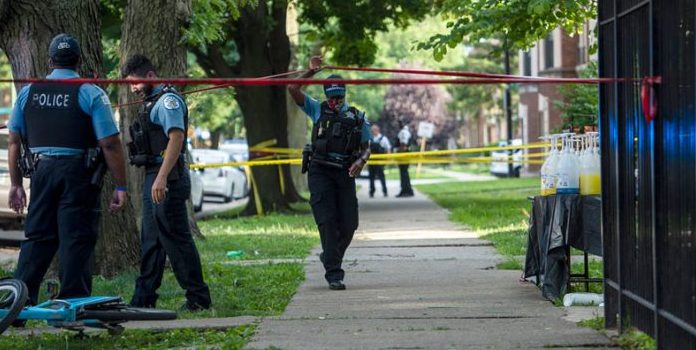(Headline USA) The highest court in Massachusetts ruled Thursday to raise from 18 to 21 the minimum age at which a person can be sentenced to mandatory life without parole in a narrow 4-3 ruling.
The decision came in the case of Sheldon Mattis, who was convicted of the 2011 killing of a Boston teen as part of a gang feud. Mattis was 18 at the time of the shooting and was sentenced to life without the possibility of parole.
Mattis’s attorney, Ruth Greenberg, called the release of the ruling “a very good day.”
“People who are 18 are more like people who are 17 than people who are 35. They are capable of change, and often their decisions at that young age were not entirely their own,” Greenberg said. “It is courageous and it is correct, and other courts will follow it.”
As a result of Thursday’s ruling by the state Supreme Judicial Court, Mattis and other “emerging adults” ages 18 to 20 at the time of their crime and sentenced to life without parole before July 25, 2014, will be resentenced to life with the possibility of parole after 15 years.
Mattis’s co-defendant, Nyasani Watt, who pulled the trigger, was only 17 at the time of the killing and received a life sentence with the possibility of parole after 15 years. Thursday’s ruling does not alter his ability to seek parole.
Until the ruling came, Massachusetts was one of 10 states that required people ages 18 to 20 who are convicted of first-degree murder to be sentenced to life without parole, according to the court.
In their decision, the justices referred to people those ages as “emerging adults.”
“Advancements in scientific research have confirmed what many know well through experience: the brains of emerging adults are not fully mature. Specifically, the scientific record strongly supports the contention that emerging adults have the same core neurological characteristics as juveniles,” the justices wrote.
The court also wrote that “by providing an opportunity for parole, we do not diminish the severity of the crime of murder in the first degree because it was committed by an emerging adult.”
Advocates praised the ruling.
“The years of emerging adulthood are a time of intensive brain development. These young people are wired for impulsivity, not fully able to think through consequences, and heavily influenced by peers,” said Lael Chester, director of the Emerging Adult Justice Project at Columbia Justice Lab.
“Like people under age 18, emerging adults are highly likely to desist from crime as they mature,” he added.
The three dissenting justices wrote that decisions about criminal sentences should be left to elected officials.
“The power to ‘define a crime and ordain its punishment’ is an exclusively legislative function,” the justices wrote. “For the crime of murder in the first degree, the Legislature has deemed the mandatory imposition of life without the possibility of parole to be the appropriate punishment for adults eighteen and older.”
Other critics, including some prosecutors, have also argued the decision should be left to lawmakers. More than 200 people are serving life without parole sentences in Massachusetts prisons for killings committed as 18-, 19- and 20-year-olds.
Suffolk District Attorney Kevin Hayden said his office has identified about 70 inmates who will eventually become eligible for parole because of the ruling. He said the ruling doesn’t automatically grant parole to those inmates.
He also said his office is reaching out to family members of homicide victims to help them understand what options they have moving forward.
Watt was 10 days away from turning 18 when, authorities said, Mattis handed him a gun and Watt fatally shot 16-year-old Jaivon Blake in Boston’s Dorchester neighborhood. Mattis and Watt were tried jointly and convicted of first-degree murder.
Mattis had argued that his mandatory sentence of life without parole violated the prohibition of cruel or unusual punishment because he was under 22 at the time.
The Supreme Judicial Court in 2020 ordered a lower court to gather more information about brain development so it could decide whether to extend the ban on life without parole sentences to young adults.
About a decade ago, the Massachusetts court did away with life without the possibility of parole for juveniles.
In 2012, the U.S. Supreme Court also found that life without parole sentences for people under 18 should be rare. In 2021, a more conservative high court made it easier to hand down those punishments for juveniles, ruling that it doesn’t require a finding that a minor is incapable of being rehabilitated.
Adapted from reporting by the Associated Press

